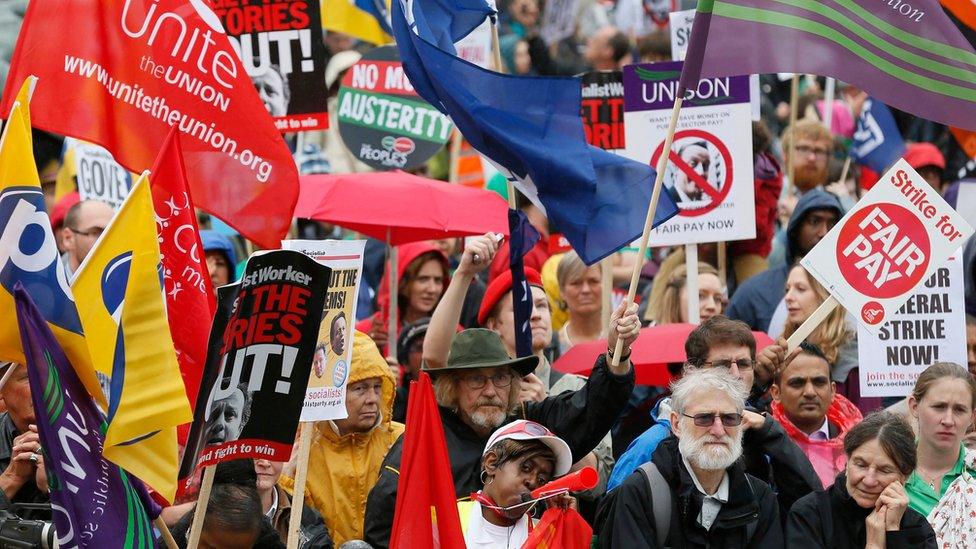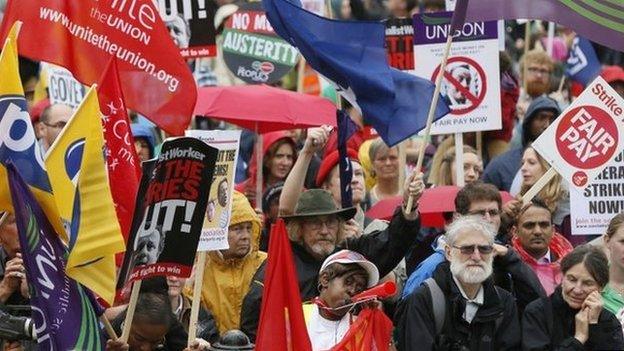Peers defeat trade union funding reforms
- Published

The government has been heavily defeated in the House of Lords over trade union reforms Labour fears will cost it millions of pounds in funding.
Ministers want to require Labour-affiliated union members to "opt in" to paying a levy to the party.
But peers voted by 320 to 172 to apply the changes to new members only and with a 12-month transition period.
Business Minister Baroness Neville-Rolfe said the change was not aimed at Labour Party finances.
The vote on political levies was one of three defeats for the government's Trade Union Bill.
Peers also voted to commission an independent review of electronic balloting for industrial action - which ministers have rejected - and against a cap on the amount of paid time public sector workers can spend on trade union activity.
New members only
Trade unions' political funds can be used for political campaigning and to make donations.
If an opt-in is introduced, Labour believes three million fewer members of the biggest unions would agree to pay into them, costing it £6m.
In January, peers voted to set up a cross-party committee so the proposals were more closely examined.

Peers also backed a review of electronic voting for strike ballots
The committee concluded the changes should only apply to new members of a trade union, not existing ones.
Its chairman, crossbencher Lord Burns, said the Conservative manifesto had been "loosely worded" on the matter, and said the amendment did not break the government's manifesto commitment to introduce a "transparent opt-in process for union subscriptions".
"It avoids the trap of being drawn into a war on political funding," Lord Burns said.
The committee also said the issue of existing members opting-in to the political levy should be considered as part of a wider review into party funding.
Labour's Baroness Smith of Basildon said the government's plans were designed to make opting in as difficult as possible to have a negative impact on Labour.
"It will have a disproportionate, unnecessary impact on trade union political funds," she said.
But Lady Neville-Rolfe said she did not understand why opt-in should apply to new members but not existing ones as she described the committee's recommendation as a "wrecking amendment".
"It is not acceptable in many areas of daily life to automatically deduct payment for a cause that has not been actively consented to," she added.
- Published21 January 2016

- Published15 July 2015
